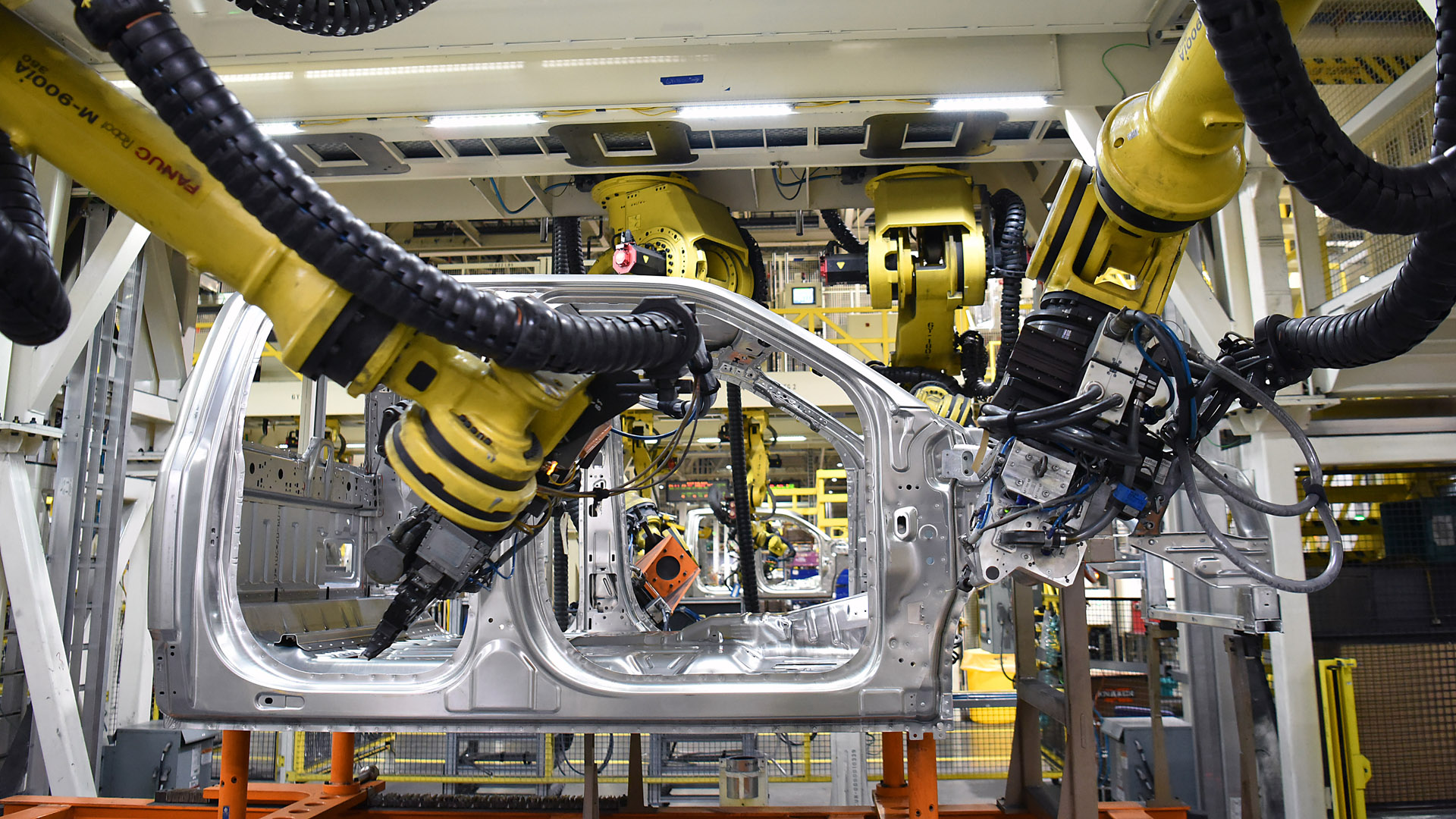

Welcome back to Speed Lines, The Drive’s morning roundup of what matters most in the world of transportation. We hope you’re staying safe and sane. Lots of news today, so let’s dive in.
Ford Back In April?
American auto plants lay dormant as we all brace for the worst of the coronavirus outbreak to be over—whatever “over” means. Even with an unprecedentedly large stimulus package on the way for corporations and workers alike, car companies can’t survive for long if they can’t make or sell their products.
The White House aims to get the economy “going” again by Easter, though that goal has been met with considerable skepticism and criticism. Now Ford too is aiming to get car production up and running again in April: the early part of the month for its Mexican plant, and mid-month for several U.S. plants.
Here’s Automotive News:
It expects to reopen its Hermosillo Assembly Plant on one shift on April 6 and plans to restart production April 14 at Dearborn Truck, Kentucky Truck, Kansas City Assembly and Ohio Assembly.
In a statement, the UAW said: “We are reviewing with great concern and caution today’s announcement. Our priority is the health and safety of our members, their families and the American public.”
The automaker said a number of other operations also are scheduled to restart April 14 to support the assembly plants. Those are Dearborn Stamping, Dearborn Diversified Manufacturing, integrated stamping plants inside KCAP and KTP, Sharonville Transmission, and portions of Van Dyke Transmission, Lima Engine and Rawsonville Components.
Ford did not offer restart dates for Chicago Assembly, Flat Rock Assembly, Michigan Assembly, Louisville Assembly, Cuautitlan Assembly in Mexico or Okaville Assembly in Canada.
As of this writing, no similar announcements have been made by other automakers. But while some areas in the U.S. have managed to slow the spread of the virus, experts have warned that getting people back at work prematurely could reverse that trend. More on this as we get it today.
Stimulus: A Lifeline, Not A Bailout, For Automakers
In yesterday’s Speed Lines, I wondered aloud whether the $2 trillion economic rescue package would direct money to America’s automakers, all of whom are taking a huge hit as factories are shuttered and sales drop to catastrophically low levels (more on that in a bit.) The automakers haven’t sought another bailout, per se, but they have argued for access to liquidity.
That’s likely what will happen to automakers with the stimulus, reports Reuters:
Republican Senator Pat Toomey said Wednesday the deal, which he called “the biggest government intervention in the economy in the history of the world,” sets aside $454 billion to make loans or loan guarantees for companies across all sectors, as well as states.
It was more likely the money will be used to leverage even more funds in loans from the Federal Reserve, said Toomey, who told reporters on a conference call that the Treasury would then be able to make loans, purchase loans or purchase corporate debt, which could be a major boost for automakers.
Industry officials, especially at General Motors Co, were eager to avoid the appearance of a federal bailout. Sales suffered and the No. 1 U.S. automaker was nicknamed “Government Motors” after its $50 billion bailout in 2009.
As that story notes, and as we have reported here before, the automakers are in considerably better shape than they were in the 2008-2009 financial crisis. But if sales and production stay down for long, automakers need to seek additional help.
Ford, meanwhile, has seen its credit rating downgraded to “junk” status by S&P Global Ratings. There’s a strong chance GM’s rating could get lowered as well.
How Bad Will Auto Sales Get?
We’re looking at sales declines as high as 80 percent in some places—naturally, those hit hardest by the outbreak like New York. Here’s Reuters:
Auto retail sales through the week of March 22 declined 22% nationwide on a yearly basis and as much as 40% in some cities on the U.S. West Coast, according to an analysis by research firm J.D. Power, based on data from dealership stores around the country.
Last week’s data did not yet fully account for various U.S. states passing shelter-in-place orders at the end of last week.
“We expect to see a much broader and wider impact from these restrictions next week with sales declining 80% or more,” said Tyson Jominy, the firm’s vice president of data and analytics.
Tyson said New York in particular, a market that has so far proven rather resilient, is expected to change dramatically over the coming week. New York on March 20 ordered the state’s roughly 19 million residents to stay at home.
As that story notes, we could see an acceleration of actual, modern online car sales, something we’ve argued for on these pages. Maybe sales declines that steep will finally force dealers to live in this century.
On Our Radar
White House close to finalizing fuel efficiency rules rewrite, report says (Automotive News)
Tesla to reopen New York plant ‘as soon as humanly possible’ to make ventilators (Reuters)
Hertz to Offer Free Rental Vehicles to Help Health-Care Workers (WSJ)
Volkswagen expects German car market to recover in summer (Reuters)
Read These To Seem Smart And Interesting
How the Pandemic Will End (The Atlantic)
Marfa’s public radio wants to ease your social isolation during the pandemic (Washington Post)
‘You don’t understand, Captain. He has a gun’: The hijacking of Flight 1320 (Boston Globe)
Your Turn
Is it too soon for Ford to get back up to speed? Or does the automaker have no choice?